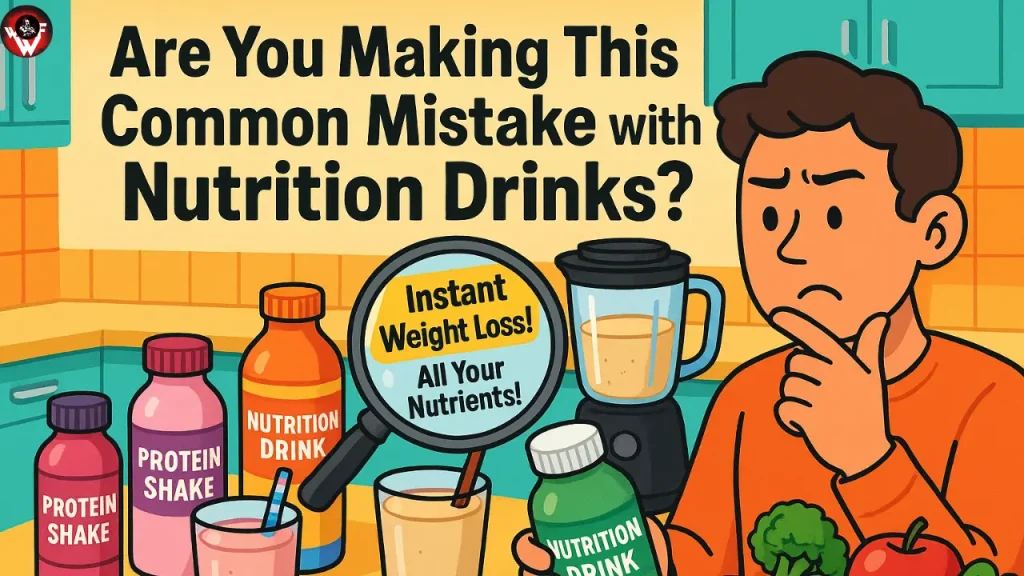Table of Contents
- Introduction: When Headaches Become a Daily Struggle
- The Overlooked Link Between Headaches and Nutrition
- The Surprising Vitamin Behind Many Headaches
- How Vitamin B2 (Riboflavin) Supports Brain and Nerve Health
- Signs You Might Have a Riboflavin Deficiency
- Other Vitamin Deficiencies That Can Trigger Headaches
- Case Studies: Real People, Real Relief
- How to Boost Your Vitamin B2 Levels Naturally
- Supplements: What to Know Before You Buy
- When to See a Doctor
- FAQs: Your Headache Questions, Answered
- Suggested Visuals & Media Ideas
- Key Takeaways
- References
Introduction: When Headaches Become a Daily Struggle
We’ve all been there — that dull, pounding ache behind your eyes or the throbbing tension across your forehead that just won’t quit.
But what if your headaches aren’t just from stress, dehydration, or staring at screens too long?
Surprisingly, a simple vitamin deficiency might be playing a hidden role in those recurring headaches or migraines.
Recent studies (2024) reveal that many people suffering from frequent headaches have low levels of certain B vitamins — particularly Vitamin B2 (Riboflavin). And when this vital nutrient is replenished, symptoms often improve dramatically.
Let’s dive deeper into how this overlooked vitamin could be the missing piece in your headache puzzle.
The Overlooked Link Between Headaches and Nutrition
We often blame headaches on tension, lack of sleep, or caffeine withdrawal — but our nutrient intake is rarely considered.
However, your brain is an energy-hungry organ. It relies on a delicate balance of vitamins, minerals, and antioxidants to function smoothly. Even minor deficiencies can throw off this balance, triggering pain signals and inflammation.
🔍 Did You Know?
A 2024 review from the Journal of Nutritional Neuroscience found that nearly 38% of chronic headache sufferers had at least one B-vitamin deficiency — most commonly riboflavin or B12.
Nutrient deficiencies can affect:
- Mitochondrial function (how your brain cells make energy)
- Neurotransmitter balance (mood, stress response, pain perception)
- Blood flow and oxygen delivery to the brain
When any of these go off track, headaches often follow.
The Surprising Vitamin Behind Many Headaches
The star of the show here is Vitamin B2 — also known as Riboflavin.
This bright yellow vitamin plays a critical role in energy production, cell repair, and antioxidant defense. Without enough of it, your brain cells can’t generate energy efficiently, leading to fatigue, eye strain, and — you guessed it — headaches.
🧩 How Riboflavin Works
Riboflavin helps create two key compounds:
- FMN (Flavin mononucleotide)
- FAD (Flavin adenine dinucleotide)
These are essential for mitochondrial energy metabolism — the process by which your cells convert food into usable energy.
If your brain doesn’t have enough energy, it becomes more sensitive to triggers like stress, light, or dehydration, which can spark a headache or migraine.
How Vitamin B2 Supports Brain and Nerve Health
Improves Mitochondrial Efficiency
Riboflavin helps cells produce ATP — your body’s “energy currency.” Better mitochondrial performance means fewer fatigue-induced headaches.
Reduces Oxidative Stress
It acts as an antioxidant, neutralizing free radicals that can damage nerve cells and blood vessels.
Regulates Neurotransmitters
Vitamin B2 works alongside other B vitamins (especially B6 and B12) to support serotonin and dopamine production — key chemicals involved in mood and pain regulation.
Protects Against Migraine Triggers
According to a 2024 study from the American Journal of Headache Medicine, supplementing with 400 mg of riboflavin daily reduced migraine frequency by 68% after three months.
Signs You Might Have a Riboflavin Deficiency
You might not realize you’re low on B2 — but your body sends signals. Look out for:
| Symptom | Possible Explanation |
|---|---|
| Frequent headaches or migraines | Low energy metabolism in brain cells |
| Cracked lips or mouth corners | Impaired cell repair |
| Fatigue and low concentration | Poor energy production |
| Light sensitivity | Nervous system stress |
| Skin rashes | Reduced antioxidant function |
| Sore throat or swollen tongue | Mucosal cell damage |
🩺 Quick fact: Riboflavin deficiency is often secondary — caused by poor absorption or high demand (like during stress or pregnancy), rather than diet alone.
Other Vitamin Deficiencies That Can Trigger Headaches
While Vitamin B2 is a major player, several other nutrients also influence headache frequency and severity.
| Vitamin / Mineral | Role in Headache Prevention | Food Sources |
|---|---|---|
| Vitamin B12 | Supports nerve health & reduces inflammation | Eggs, fish, fortified cereals |
| Vitamin D | Regulates mood and immune function | Sunlight, fortified dairy, salmon |
| Magnesium | Relaxes blood vessels & muscles | Leafy greens, nuts, avocado |
| CoQ10 | Boosts mitochondrial energy | Organ meats, oily fish |
| Folate (B9) | Helps produce serotonin | Spinach, lentils, citrus |
🧠 Many migraine specialists now recommend a “nutrient optimization protocol” combining Riboflavin, Magnesium, and CoQ10 for chronic headache sufferers.
How to Boost Your Vitamin B2 Levels Naturally
🥗 Top Food Sources of Riboflavin
- Eggs (especially the yolk)
- Lean meats and liver
- Almonds and sunflower seeds
- Dairy products (milk, yogurt, cheese)
- Leafy greens like spinach and kale
- Fortified cereals and grains
💡 Tip: Riboflavin is sensitive to light — so store foods in opaque containers and avoid leaving milk in clear bottles near sunlight.
Supplements: What to Know Before You Buy
If diet alone isn’t enough, Riboflavin supplements can be an effective solution.
Recommended Dosage (based on studies)
- General support: 100–200 mg/day
- Migraine prevention: 400 mg/day (split doses)
Always consult your doctor before starting supplements, especially if pregnant or taking medication.
What to Look For
- “Active” or “coenzymated” forms (e.g., riboflavin-5-phosphate)
- GMP-certified, third-party tested brands
- Avoid fillers or artificial dyes
💬 Pro Tip: Combining B2 with Magnesium and CoQ10 can enhance results for chronic headaches.
When to See a Doctor
While mild headaches are common, chronic or severe pain could signal an underlying issue.
See a healthcare provider if you experience:
- Headaches more than 10–15 days per month
- Vision changes or dizziness
- Sudden or severe pain
- Headaches that worsen over time
A simple blood test or nutrient panel can reveal if a deficiency is part of the problem.
FAQs: Your Headache Questions, Answered
Can a vitamin deficiency really cause daily headaches?
Yes — especially deficiencies in Riboflavin, B12, Vitamin D, and Magnesium. These nutrients regulate energy, nerves, and blood flow.
How long does it take to feel results after taking Vitamin B2?
Most people notice improvement within 4–8 weeks of consistent intake.
Can kids or teens take Riboflavin?
Yes, but only under pediatric guidance. Doses are lower (typically 50–100 mg/day).
Are there any side effects?
Riboflavin is water-soluble, so excess is excreted in urine (it may turn bright yellow — completely normal!).
What’s the best time to take it?
With meals for optimal absorption, especially breakfast.
Key Takeaways
- Frequent headaches can be a symptom of Vitamin B2 deficiency.
- Riboflavin supports brain energy, neurotransmitters, and antioxidant defense.
- Studies show up to 68% reduction in migraines with B2 supplementation.
- Combine B2 with Magnesium and CoQ10 for added benefit.
- Always consult a healthcare professional for personalized advice.
✨ Small changes in your nutrition can mean big relief for your head!
References
- American Journal of Headache Medicine (2024). Riboflavin and migraine prophylaxis: Updated evidence review.
- Journal of Nutritional Neuroscience (2024). Micronutrient deficiencies and neurological function.
- European Journal of Neurology (2024). Role of vitamin supplementation in chronic headache management.
- NIH Office of Dietary Supplements (2025). Vitamin B2 Fact Sheet for Consumers.
- Mayo Clinic (2025). Vitamin Deficiency and Headaches.
Visit Our Facebook
You can read this too : Top 5 Doctor-Recommended Ways to Treat Vitamin D Deficiency



